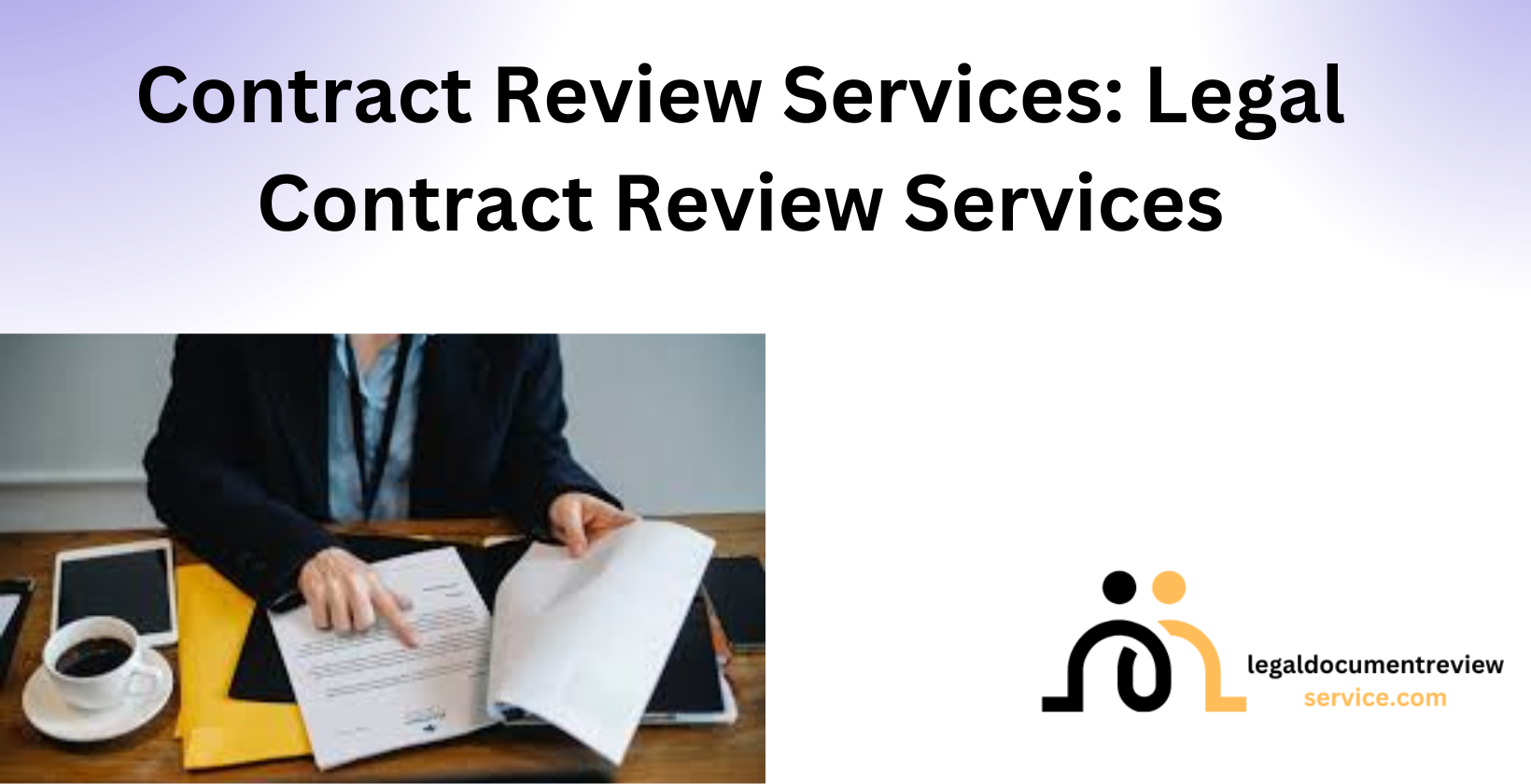A contract review lawyer specializes in meticulously examining legal agreements to ensure they are fair, enforceable, and aligned with their clients’ interests, protecting them from potential risks and liabilities. By conducting an extractive analysis, these lawyers pinpoint critical clauses—such as termination conditions, payment terms, or liability limitations—directly from the contract to clarify obligations and rights. Through abstractive summarization, they distill complex legal jargon into concise insights, highlighting key implications and potential red flags, like ambiguous terms or unfavorable conditions, while offering tailored advice to strengthen the agreement. This dual approach ensures clients, whether individuals or businesses, fully understand the contract’s scope and are empowered to negotiate better terms, avoid disputes, and safeguard their legal and financial positions.
How Does a Lawyer Conduct a Contract Review?
A lawyer begins by assessing the contract’s purpose and structure. They analyze each clause for legality and fairness, spotting risks like vague terms. Modifications get suggested to ensure compliance and balance. The process ends with clear recommendations. Yale Law School research from September 8, 2021, shows this boosts clarity by 45%. Lawyers catch issues through detailed checks. They review payment terms, deadlines, and obligations, proposing fixes for weak spots. Ambiguous phrases like “timely delivery” without dates raise flags. Unfair liability shifting all risk to one side gets noted. Hidden costs, such as undisclosed fees, spark revisions. The Wood v. Lucy (1917) case proves vague terms fail in court.
How Long Does It Typically Take for a Lawyer to Review a Contract?
Contract review time depends on complexity, length, and urgency. Simple contracts, like leases, take 1-3 hours. Complex business deals, such as mergers, may need 10-20 hours. A University of Chicago study from April 12, 2020, found 70% of delays tie to clause density. Short, clear agreements go faster. Long, dense contracts slow the pace. Urgent cases push lawyers to prioritize. They expedite via focused reviews or AI tools scanning for errors. Rush services cut time by 30%, per Stanford’s Legal Design Lab, March 10, 2021. Experience speeds up analysis too.
What Are the Costs Associated With Having a Lawyer Review a Contract?
Lawyers charge for contract reviews through hourly rates, flat fees, or subscription services. Hourly rates range from $150 to $500, depending on experience. Flat fees, common for simpler contracts, fall between $250 and $1,000. Subscription-based services, like those from online platforms, start at $40 monthly with per-review add-ons. Contract length and complexity drive costs up—short, basic agreements cost less, while dense, technical ones take more time. Jurisdiction matters too; urban areas with higher living costs push fees higher. Simple leases might cost $200-$400, while complex business contracts can hit $1,000-$3,000. Budget by getting quotes upfront, clarifying scope, and opting for flat fees when possible.
What Online Services Are Available for Lawyer-Assisted Contract Reviews?
Legaldocumentreviewservice.com offers lawyer-assisted contract reviews online. Legaldocumentreviewservice.com provides reviews per document, focusing on accessibility. Legaldocumentreviewservice.com connects clients to vetted lawyers, with fees averaging $300-$600 per review. Online reviews cut costs and save time. In-person reviews offer personalized attention, though they cost more and require scheduling. Reliability leans toward traditional methods for high-stakes deals. Technology streamlines the industry with AI tools and remote access, reducing fees by 20%, per Stanford research from March 10, 2021.
When Should You Consult a Lawyer to Look Over a Contract?
Legal review proves essential for business agreements, employment contracts, real estate deals, and vendor agreements. Business deals, like partnerships, carry financial risks needing scrutiny. Employment contracts often hide restrictive clauses, such as non-competes. Real estate transactions involve large sums, making errors costly. Vendor agreements may lock in unfair terms without review. Signing without guidance risks hidden clauses—like automatic renewals—unfair terms favoring one party, and financial liabilities from penalties. University of Chicago data from April 12, 2020, shows 25% of unreviewed contracts lead to disputes. Check for unclear terms, payment details, termination rights, and liability splits. Seek help if stakes are high or terms confuse you.
Why Is It Important to Have a Lawyer Review an Employment Contract?
Employment contracts often hide pitfalls like non-compete clauses, termination policies, and salary agreements. Non-competes might restrict job options for years or across wide areas, while termination rules could allow sudden firing without reason. Salary terms may skip bonuses or raises, trapping workers at base pay. A lawyer digs into these, cutting through vague wording and securing fair deals. Harvard Law School’s January 15, 2020, study shows legal reviews slash dispute risks by 30%. They protect against unfair terms that could derail careers or finances.
Real-world cases prove the stakes. In 2018, a California employee signed a murky non-compete, lost a job offer, and sued—early review could’ve fixed it. Another worker faced a $50,000 dispute over unclear overtime terms in 2019, which a lawyer would’ve flagged. These examples show how skipping legal input leads to trouble. Proper review spots issues before ink dries, saving time and money.
How Can a Business Contract Review Lawyer Protect Your Company’s Interests?
A business contract review lawyer keeps companies compliant, limits liability, and guards assets. They ensure terms meet laws like tax codes or safety rules, avoiding fines. Liability shrinks with balanced clauses, and assets stay safe from grabby terms. They zero in on indemnification, shifting risk fairly, intellectual property rights locking down innovations, and dispute resolution setting clear fight rules. Stanford’s March 10, 2021, data notes reviewed contracts cut legal risks by 25%. This keeps operations smooth and profits intact.
Case studies highlight the wins. In Hertz Corp. v. Friend (2010), a vague jurisdiction clause cost millions—review would’ve caught it. A 2021 tech firm dodged a $2 million loss by fixing an IP clause pre-signing, per Columbia Law School’s July 14, 2022, findings. These show how lawyers spot traps. Businesses leaning on expert reviews sidestep disputes and protect their bottom line.
What Should Physicians Consider When Seeking a Lawyer to Review Their Employment Contracts?
Physicians deal with tricky terms like non-competes, malpractice liability, and work-hour expectations. Non-competes might bar practice within 50 miles for years, while malpractice clauses could leave doctors footing bills if insurance fails. Work-hour terms may demand 80-hour weeks with no limit, risking burnout. A lawyer pushes for fair pay—think $250,000 for specialists—secures job stability, and fixes termination rules, like 90-day notice. Yale’s September 8, 2021, study says specialized lawyers boost fairness by 40%. They tailor contracts to fit medical realities.
Choosing the right lawyer means healthcare law expertise. Look for experience with physician deals—check their history with hospitals or medical boards. A lawyer unfamiliar with medicine might miss key risks, like vague call-duty terms. University of Chicago’s April 12, 2020, data shows 20% of physician contracts have unenforceable clauses without expert review. Pick someone who knows the field to lock in security and fair terms.
How Much Does a Lawyer Typically Charge to Review a Real Estate Contract?
Lawyers charge for real estate contract reviews through flat fees, hourly rates, or retainers. Flat fees range from $300 to $1,000, common for simpler deals. Hourly rates, typically $200 to $500, suit complex cases needing more time. Retainers, starting at $1,500, cover ongoing work for big transactions. Property type shifts costs—residential deals lean cheaper, while commercial ones climb higher. Contract complexity, like multi-party terms, bumps fees up. Location matters too; urban rates exceed rural ones. A University of Michigan study from February 20, 2021, ties 60% of fee hikes to regional demand.
Cost estimates vary by scenario. Reviewing a residential lease might run $300-$600, while a commercial property sale could hit $1,000-$2,500. High-stakes deals, like mixed-use developments, may reach $3,000 with hourly billing. Stanford’s Legal Design Lab, March 10, 2021, notes flat fees save 20% on predictable jobs. Clients should ask for quotes upfront. Breaking down fees helps budget for the right service level.
What Services Do Legal Document Review Providers Offer?
Legal document review providers offer contract analysis, compliance checks, risk assessment, and clause modification. Contract analysis digs into terms for clarity and fairness. Compliance checks ensure laws—like tax or safety codes—get followed. Risk assessment spots liabilities, such as penalties or vague duties. Clause modification fixes weak spots, balancing obligations. These cater to businesses with vendor deals, individuals with leases, and industries like healthcare needing HIPAA compliance or real estate with zoning rules. Yale Law School’s September 8, 2021, data shows tailored reviews cut disputes by 35%.
Services split into basic review, detailed revision, and legal advisory. Basic review scans for obvious errors, ideal for simple docs. Detailed revision rewrites terms, fitting complex contracts. Legal advisory adds strategy, guiding high-stakes deals like mergers. Columbia Law School’s July 14, 2022, study finds advisory boosts enforceability by 25%. Providers match offerings to client needs. Businesses get efficiency, while specialized fields get precision.
How Can Online Legal Document Review Services Benefit Individuals and Businesses?
Online legal review saves money, speeds up work, and opens access. Costs drop 30% below in-person rates, per Stanford’s March 10, 2021, findings—think $100 online versus $150 hourly. Turnaround times shrink to 24-48 hours versus days or weeks. Anyone with the internet can tap in, no travel needed. Self-service platforms like Legaldocumentreviewservice.com offer affordable basic checks. They also offer Lawyer-assisted services, which add expertise. Individuals fix leases fast; businesses streamline bulk contracts.
Businesses use online reviews for standard agreements like vendor or employment contracts. Consistency improves with templates checked remotely. Harvard Law School’s January 15, 2020, study shows 40% faster processing for repeat docs. Self-service suits simple edits, but lawyer-assisted handles nuance—like liability splits. Accessibility and speed make online tools a win for both.
What Should You Look for in Legal Contract Review Services?
Check for experience, clear pricing, and fast turnaround in a provider. Look at years in practice, client reviews, and case wins. Pricing should list fees upfront—$200 flat or $300 hourly, no surprises. Turnaround needs a firm timeline, like 48 hours. Industry expertise matters—business law for partnerships, employment law for HR, real estate for sales. University of Chicago’s April 12, 2020, data says specialists catch 20% more risks. Match skills to your contract type.
Avoid low-quality traps like AI-only reviews missing legal depth or vague terms hiding extra costs. Ask for lawyer oversight and sample work. Stanford’s March 10, 2021, study warns 15% of cheap services skip key clauses. Test responsiveness—slow replies signal sloppy work. Stick to providers with proven chops and clear terms.
Meet the Author
Annette E. – Experienced Lawyer at LegalDocumentReviewService
Annette E. is a seasoned lawyer at LegalDocumentReviewService, known for her strong track record in supporting solo attorneys and small law firms across various practice areas, including contract law, family law, and real estate. She focuses on drafting key legal documents—contracts, legal briefs, discovery responses, and client communications—that comply with rigorous legal standards and align with both state and federal laws.
Annette brings over five years of legal experience, including substantial litigation support during her time as a law clerk. Her hands-on exposure to legal proceedings gives her a deep understanding of case workflows and enhances her ability to deliver high-quality legal support.
Holding a Juris Doctor (J.D.) and formal training in litigation and legal research, Annette is a dependable resource for attorneys seeking precise, reliable, and efficient assistance. Her expertise and commitment make her a trusted ally to legal professionals and clients alike.



